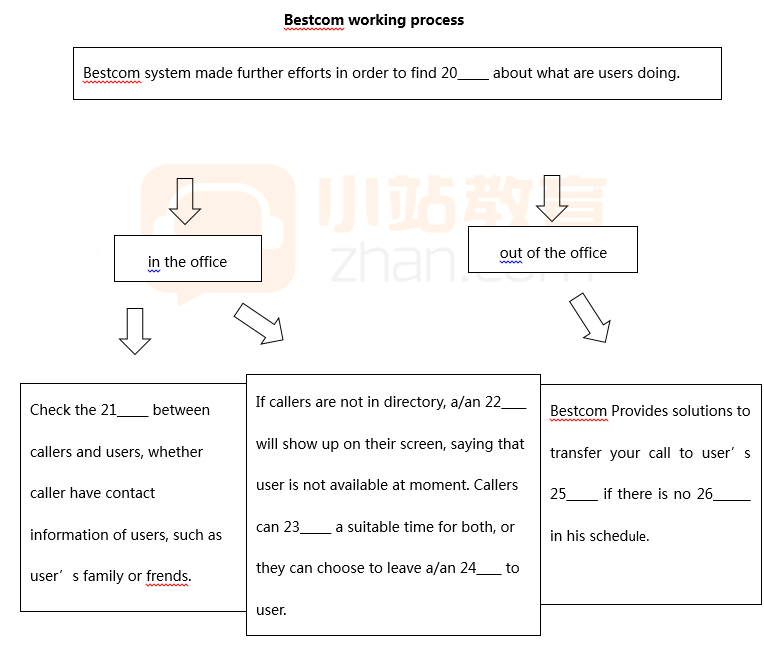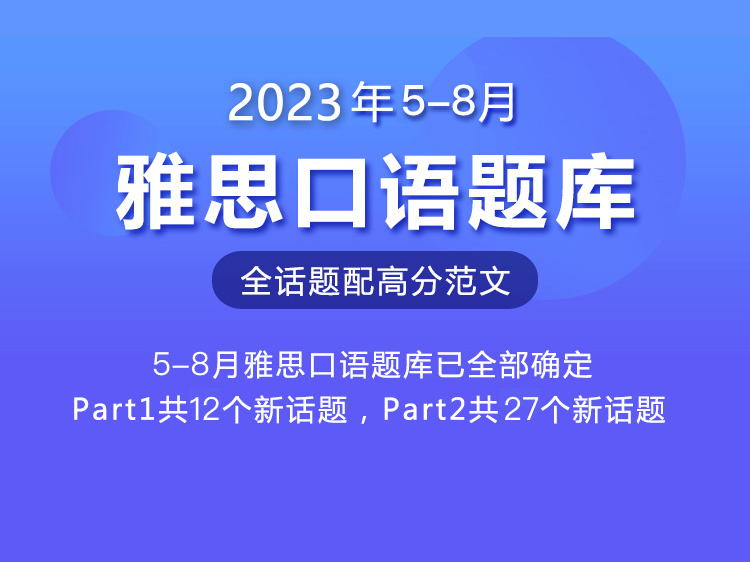【小站出品】雅思阅读机经真题解析-Bestcome Considerate Computing
- 2016年10月25日13:38 来源:小站教育作者:小站雅思编辑
- 参与(1) 阅读(55481)
小站独家,雅思阅读机经真题解析。一切患有雅思阅读刷题强迫症的烤鸭,请看这里。小站精心整理了一批雅思阅读机经真题。如果你的剑桥雅思阅读已是烂熟于心,那么这一系列的雅思阅读机经真题真的很适合你,搭配上绝对原创的讲解,还有全文的中文翻译,这等阅读大餐,还等什么!
A
“Your battery is now fully charged”, Announced the laptop computer to its owner, Donald A Norman, with enthusiasm-perhaps even a hint of pride?---in its synthetic voice. To be sure, distractions and multitasking are hardly new to the human condition. “A complicated life, continually interrupted by computing requests for attention, is as old as procreation,” laughs Ted Selker of the Massachusetts Institute of Technology Media Lab. But increasingly, it is not just our kids pulling us three ways at once; it is also a relentless barrage of e-mail, alerts, alarms, calls, instant messages and automated notifications, none of them coordinated and all of them oblivious to whether we are busy—or even present. “It’s ridiculous that my own computer can’t figure out whether I’m in front of it, but a public toilet can,” exclaims Roel Vertegaal of Queen’s University in Ontario.
B
Humanity has connected itself through roughly three billion networked telephones, computers traffic lights—even refrigerators and picture frame—because these things make life more convenient and keep us available to those we care about. So although we could simply turn off the phones, close the e-mail program, and shut the office door when it is time for meeting or strench of concentrated work, we usually don’t. We just endure the consequences.
C
Numerous studies have shown that when people are unexpectedly interrupted, they not only work less efficiently but also make more mistakes. “It seems to add cumulatively to a feeling of frustration,” Picard reports, and that stress response makes it hard to regain focus. It isn’t merely a matter of productivity and the pace of life. For pilots, drivers, soldiers and doctors, errors of inattention can be downright dangerous. “If we could just give our computers and phones some understanding of the limits of human attention and memory, it would make them seem a lot more thoughtful and courteous,” says Eric Horvitz of Microsoft Research. Horvitz, Vertegaal, Selker and Picard are Eric Horvitz among a small but growing number of researchers trying to teach computers, phones, cars and other gadgets to behave less like egocentric oafs and more like considerate colleagues.
D
“Attentive” computing systems have begun appearing in newer Volvos and IBM has introduced Websphere communications software with a basic busyness sense. Microsoft has been running extensive in-house tests of a much more sophisticated system since 2003. Within a few year, companies may be able to offer every office worker a software version of the personal receptionist that only corner-suite executives enjoy today. But if such an offer should land in your inbox, be sure to read the print before you sign. An attentive system, by definition, is one that is always watching. That considerate computer may come to know more about your work habits than you do.
E
Most people aren’t as busy as they think they are, which is why we can usually tolerate interruptions from our inconsiderate electronic paraphernalia. James with Jennifer Lai of IBM Research to study 10 managers, researchers and interns at work. They Videotaped the subjects and periodically had them rate their “interruptibility. ” The amount of time the workers spent in leave-me-alone mode varied from person to person and day to day, ranging from 10 to 51pericent. On average, the subjects wanted to work without interruption about one third of the time. In studies of Microsoft employees, Horvitz has similarly found that they typically spend more than 65 percent of their day in a state of low attention.
F
Today’s phones and computers, which naively assume that the user is never too busy to take a call, read an email, or click “OK” on an alert box, thus are probably correct about two thirds of time. To be useful, then considerate systems will have to be more than 65 percent accurate in sending when their users are near their cognitive limits.
G
Bestcom/Enhanced Telephony, a Microsoft prototype based on Horvitz’s work, digs a litter deeper into each user’s computer to find clues about what they are up to. Microsoft launched an internal beta test of the system in mid-2003. By Last October, Horvitz says, about 3,800 people were using the system to field their incoming phone calls.
H
Horvitz himself is one of those testers, and while we talk in his office in Redmond, Wash., Bestcom silently handles one call after another. First it checks whether the caller is listed in his address book, the company directory, or its log of people he has called recently. Triangulating these sources, it tries to deduce their relationship. Family members, supervisors and people he called earlier today ring through. Others see a message on their computer that he is in meeting and won’t be available until 3 P.M. The system scans Horvitz’s and the caller’s calendar and offers to reschedule the call at a time that is open for both. Some callers choose that option, others leave voice mail. E-mail messages get a similar screening. When Horvitz is out of the office, Bestcom automatically offers to forward selected callers to his cellphone—unless his calendar and other evidence suggest that he is in a meeting.
I
Most large companies already use computerized phone systems and started calendar and contact management software, so tapping into those ‘sensors’ should be straightforward. Not all employees will like the idea of having a microphone on all the time in their office, however, nor will everyone want to expose their datebook to some program they do not ultimately control. Moreover, some managers might be tempted to equate a “state of low attention” with “goofing off” and punish those who seem insufficiently busy.
Question 14-19
Do the following statements agree with the information given in Reading Passage 2? In boxes 14-19 on your answer sheet, write
TURE if the statement is true
FALSE if the statement is false
NOT GIVEN if the information is not given in the passage
14. According to Ted Selker, human reproduction has been disturbed throughout history.
15. If people are interrupted by calls or e-mails, they usually put up with it instead of feeling sickness.
16. Microsoft is now investigating a software which is compatible with ordinary offices.
17. People usually have misperception about whether they are busy or not.
18. Experts in Carnegie Mellon University conducted a research observing all occupations of IBM.
19. Current phone and computer systems have shortcut keys for people receiving information immediately.
Question 20-26
Answer the questions in the diagram below.
Choose ONLY ONE WORD from the passage for each answer.
(转第二页)












































